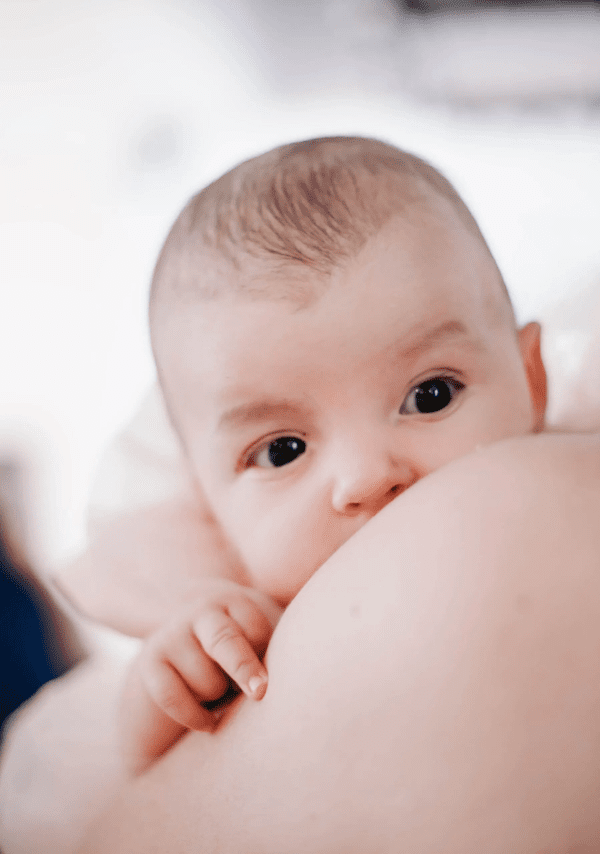If You’ve Been Searching Online For “CoQ10 Fertility” These Are Facts You Need To Know

Why am I struggling with fertility?
Lately, we’ve seen a growth in online searches for “CoQ10 fertility”. Therefore, we wanted to shed some light into this topic and see how this supplement can potentially help in your fertility journey.
As we all know, our fertility declines as we grow older. As the years pass, the number and quality of our eggs is depleted, making it more difficult to conceive a successful pregnancy. Struggles with fertility are more common as we age, but many people also have difficulty conceiving even when they are relatively young.
Fertility is a complex feat, and your ability to conceive can be impacted by a multitude of factors. No matter what age you are, just know that you are not alone if you are struggling with fertility. The good news is that there are now many treatments and strategies available to aid you in your pregnancy journey.
How do I begin my search for a fertility treatment?
If you’re one of the people searching for “CoQ10 fertility”, most probably you are struggling with fertility. The good news is that there are many different routes of treatment you can pursue. The first thing to do is to see a doctor who specializes in fertility. These doctors can complete a variety of tests, such as hormone and genetic testing. These tests, along with an analysis of your sexual habits, can help the doctor to understand what may be blocking you from getting pregnant. Some people who struggle with fertility may be candidates for treatments such as intrauterine insemination (IUI) or in vitro fertilization (IVF).
It’s important to note that each of these treatments are quite demanding, as they involve time, money, and energy. Before beginning IUI or IVF, people attempting to become pregnant may pursue various vitamins, supplements, and lifestyle changes that are known to encourage fertility. There are many well-known natural fertility boosters that are recognized as being successful. CoQ10 is a very popular supplement that can help to improve egg quality and encourage fertility.
CoQ10 fertility – what is it?
Coenzyme Q10, also known as CoQ10, is a naturally occurring biomolecule in the body. CoQ10 is present in every cell in the body and exists in two states. These two forms are ubiquinone and ubiquinol. CoQ10 acts as an antioxidant in the body and provides numerous benefits. These benefits range from relief from the symptoms of heart conditions, diabetes, migraines, and aids in physical performance. As it relates to fertility, CoQ10 is recognized as improving the quality of both eggs and sperm and the rates of conception.
Just like eggs, our body’s supply of CoQ10 depletes over time. For those who are aging and already struggling with conception, it is likely that your CoQ10 fertility count is down as well. For this reason, many people attempting to conceive a pregnancy will introduce CoQ10 supplements into their diets.
What are the benefits of CoQ10 for fertility?
If you’re curious about the CoQ10 fertility relation, there are various ways that CoQ10 aids the body during difficulties with fertility. The coenzyme exists within our cells and functions to generate energy within them. When there are higher levels of CoQ10 in our bodies, our bodies are able to produce more energy. Thus, our cells function at a higher level. Cell function is essential for a number of processes, including sperm and egg development. By encouraging the production of sperm and eggs, our bodies are much more likely to conceive a successful pregnancy.
In addition to encouraging sperm and egg development, CoQ10 also serves as an antioxidant. This means that it improves the overall health of our bodies’ cells. One factor that tends to impact fertility is oxidative stress, or OS. OS refers to an imbalance in the release of toxins in the body, which can damage many cell components. For instance, OS reduces healthy blood flow, which harms the reproductive system of the body. Antioxidants are incredibly important for fighting against OS, which is why this function of CoQ10 is so beneficial.
In addition to taking supplements such as CoQ10, a high-antioxidant diet before and during pregnancy is essential. Foods such as berries, green tea, cooked vegetables, and dark chocolate all help deliver more antioxidants to the body.

Why should I take CoQ10 instead of another fertility treatment?
For those of you searching online for “CoQ10 fertility” – one important benefit of CoQ10 in comparison to other fertility treatments is that it encourages cell function, which improves both cell and egg development. This means that the fertility of both men and women can benefit from taking CoQ10 supplements. Not only does this increase the fertility health of both people in a heterosexual partnership, but it also relieves some of the pressure of becoming pregnant from women. For example, both IUI and IVF are treatments that are only done on women with uteruses who are attempting to become pregnant. Trying out treatments such as Coenzyme Q10 supplements that can be taken by men and women increases the fertility health for both individuals and raises the chances of pregnancy.
Because Coenzyme Q10 is a naturally occurring antioxidant, it is a relatively safe supplement to take as long as you are ingesting proper amounts. There are many possible benefits of CoQ10, as it exists in the mitochondria of each cell and can have a positive impact on various bodily functions. For someone who is looking to improve their sperm or egg count and health, introducing CoQ10 supplements is a safe and relatively natural way to encourage fertility.
How much CoQ10 should I take for fertility treatment?
The recommended dosage of CoQ10 varies depending on the purpose that it’s being taken for. Fertility specialists generally recommend taking anywhere between 100mg to 600mg of Coenzyme Q10 each day. However, certain foods do naturally contain high quantities of antioxidants and/or Coenzyme Q10. These include organ meats, fatty fish, soybeans, and most vegetables. If your diet is high in these categories, your daily intake of CoQ10 may already be higher. For this reason, you might want to lean toward the lower range of intake. When it doubt, don’t be shy about asking a doctor for specific advice.
How can I work CoQ10 for fertility into my lifestyle?
The easiest way to work CoQ10 for fertility into your lifestyle is to take a supplement. The nutrient is available in pill form from many companies and can be ingested in the morning with any other medications or vitamins you may take. Many vendors will offer a CoQ10 supplement that is specially customized to help with other fertility or general health concerns. Because both men and women can take CoQ10 for fertility, there are specialized options for people of different sexes and health backgrounds.
If you are not interested in trying out a new supplement, working on implementing the antioxidant into your diet can be a more natural way to balance your fertility health. Additionally, talking to a doctor is always a good idea so that they can ensure your method of medication and treatment is properly suited for your personal fertility concerns. Also, it is important to do hormonal tests and ask about different methods on how to balance hormones.
Who is CoQ10 right for? Should I be taking it for fertility?
CoQ10 is a relatively harmless substance and is preferred by many people as a natural supplement to encourage their fertility journey. It is recognized as improving cell function and health throughout the body and in both men and women. By encouraging reproductive health as well as cell function, CoQ10 tends to have a positive impact on fertility. Nonetheless, some people do not experience any impact on fertility from CoQ10. If this is the case, it could just be that the supplement is not right for you. Additionally, this could mean that your fertility struggles are sourced from another issue. In this case, seeing a fertility specialist is always a good idea.
One of the most positive attributes of CoQ10 is that it is naturally occurring. Therefore, drawbacks of taking it are infrequent and unlikely. However, some people do experience negative reactions to taking it daily. While most people tolerate CoQ10 well, there is always the chance of stomach issues including nausea and vomiting. Doctors recommend dividing your daily intake into two smaller doses to make digestion easier for the stomach. If symptoms persist, you may be allergic to CoQ10 in the form that you are taking it, and a different fertility treatment should be pursued.
As always, there are a multitude of strategies available for encouraging fertility. Some people swear by entirely natural practices such as fertility crystals, while some recognize that more intensive medical procedures such as IUI or IVF are necessary for them. If you are struggling with fertility, there is a multitude of information available to guide you on your journey, but never be afraid to ask a doctor for help.

Additional Things To Think About If Trying To Conceive
The first line of naturopathic treatment we recommend for problems with infertility caused by PCOS and endometriosis is to minimize intake of animal products. Un-pastured and non-organically grown meat and dairy have high levels of hormones, pesticides, and herbicides which are known endocrine disruptors. They play havoc with your hormones and this can lead to a lack of ovulation. Studies have found higher concentrations of pesticides in cheese than in non-organically grown fruit and vegetables. Therefore, make sure you eliminate any food that can create hormonal imbalance. Most meat and animal-derived food will. Get information on how to balance hormones and take a holistic approach to it.
Use certified organic cosmetic products, including your skincare, hair care, and body care. Clean skincare with organic natural ingredients is becoming more popular and you should consider opting in for “clean” and non-toxic products. Occasional exposure to toxic chemicals is not of concern. However, what’s of greater concern is long-term accumulation of these chemicals in your body that happen over time with frequent exposure. This comes from personal cosmetics, cleaning supplies, food, and environmental toxins. Therefore, introduce your fertility cleanse gradually and holistically, making sure you clean your lifestyle, your diet, and your cosmetics.
Medical Disclaimer:
This content is for informational and educational purposes only. It is not intended to provide medical advice or to take the place of such advice or treatment from a personal physician. All readers of this content are advised to consult their doctors or qualified health professionals regarding specific health questions. The publisher of this content does not take responsibility for possible health consequences of any person or persons reading or following the information in this educational content. All viewers of this content, especially those taking prescription or over-the-counter medications, should consult their physicians before beginning any nutrition, supplement, skincare product, or lifestyle program.
